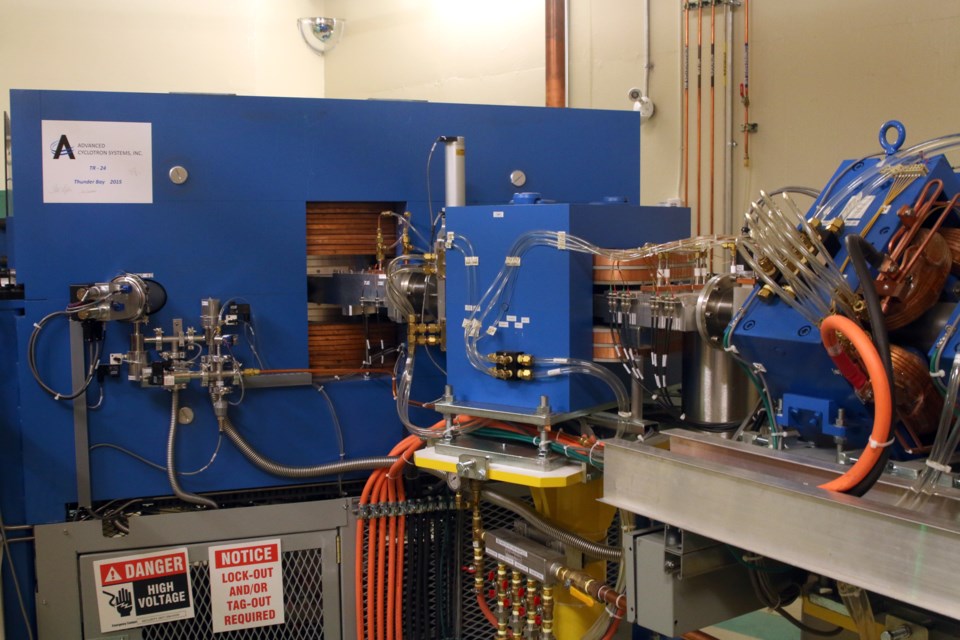THUNDER BAY – Thunder Bay Regional Health Sciences Centre’s long-awaited cyclotron is now producing medical isotopes for patients.
Hospital officials, in a release issued on Friday, say the $3.5-million machine, first installed in 2015 in a bunker at the Health Services Centre on Oliver Road adjacent to Thunder Bay Regional, had been awaiting government approval to start producing radioactive isotopes, used in imaging to scan cancer patients and for research purposes.
It became operational in 2018 and got Health Canada approval in late October 2021.
“During the startup phase of the cyclotron, isotopes were coming from a southern Ontario supplier for a month-long period to ensure everything was running smoothly. During this time, there were two events where the supply from southern Ontario did not arrive,” said Peter Myllymaa, the hospital’s executive vice-president of corporate services and operations.
“However, with our own supply, the hospital was able to provide the diagnostic service to the patients who needed them. Prior to producing isotopes locally, these patient procedures would have been cancelled and rescheduled.”
The hospital had previously been supplied with isotopes from a facility in Hamilton.
Isotopes also have a short shelf life after being produced, and travel times also impacted their effectiveness.
Isotopes attach themselves to an injectable sugar substance and are used to detect the presence and location of cancer cells in the body. A positron emission tomography scan is used to help diagnose cancer in an effective and safe manner for the patient.
Sandra Willson, manager of diagnostic imaging at TBRHSC, said having a cyclotron in Thunder Bay also adds to TBRHSC’s treatment capacity.
“One of the biggest benefits that we are seeing in producing our own isotopes is the number of patients we can treat,” Willson said. “When we were outsourcing isotopes, we could see a maximum of five patients per day, and that is if they arrived here without any delays.
“That number has grown to nine – almost double. This means less cancellations, less rescheduled appointments, and a faster diagnostic time, which means treatment planning can begin sooner. This is especially important, not only for patients in Thunder Bay, but those travelling from across Northwestern Ontario for their appointments.”
It’s a unique opportunity, said Dr. Rhonda Crocker-Ellacott, the hospital’s chief executive officer.
“It gives us the ability to be more responsive to the needs of our oncology program and support health research that puts the patient first. No longer will a patient arrive in Thunder Bay having travelled from a remote community in the region to learn that the plane carrying the isotopes did not make the trip and they should go home and re-schedule the appointment,” she said.
“They will be treated with locally produced isotopes that will guarantee the care when and where they need it. Bringing this technology to Thunder Bay would not have been possible without the support of our partners in government, and the generosity of donors who continue to make exceptional cancer care possible here at our hospital."
With all costs included, the final price tag was close to $10 million, including $1.5 million from the City of Thunder Bay.
